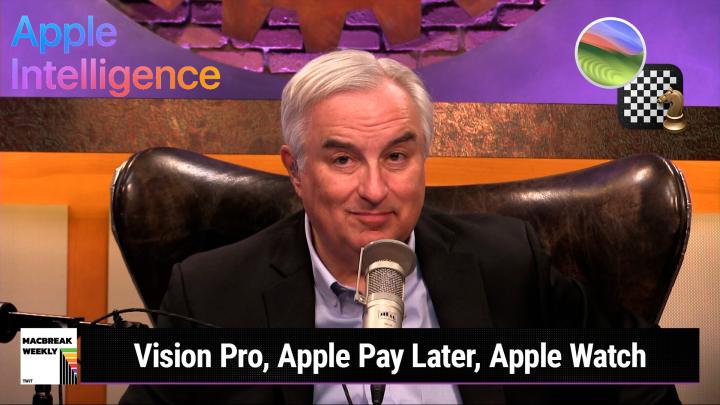Is a Cheaper Apple Vision Pro the Right Move?
AI-created, human-edited.
Apple's $3,499 Vision Pro mixed reality headset has been out for a few months, with developers having access even earlier. But on MacBreak Weekly, Leo Laporte, Andy Ihnatko, Alex Lindsay, and Jason Snell questioned whether a pricey ultra-high-end device is really the right strategy for Apple's next steps in this emerging product category.
The discussion started with a report from The Information claiming Apple has told at least one supplier that it has halted development of its next high-end Vision Pro model, reportedly code-named Vision Pro 2 or Reality Pro. Instead, the company allegedly focuses on releasing a more affordable Vision Pro in late 2025 as part of Apple's earlier roadmap for dividing the product line into premium and more mainstream models.
While calling the sourcing "flimsy," even for a supply chain rumor, Jason Snell acknowledged that pursuing a lower price point makes sense as the primary goal for broadening the adoption of visionOS devices beyond early enthusiasts and professionals. At $3,500, the cost is a huge hurdle for consumers, he argued. "If they could get it down to even $1,000 or $1,500, it would be a better argument to make."
Andy Ihnatko raised another reservation - after months of developer access, there still isn't a clear "killer app" that screams why the Vision Pro experience is worth the massive premium over more affordable VR headsets like Meta's $400 Quest 2. He praised the technical performance and innovation but questioned if Apple has truly justified that 10x delta pricing for most users.
Alex Lindsay highlighted the potential for immersive education and training experiences, pointing to the impressive JigSpace app to glimpse what's possible when 3D models can be manipulated and annotated as physical objects in a shared virtual space. However, he acknowledged that creating such compelling VR/AR content remains extremely difficult and costly today.
The panel seemed to agree that Apple's near-term focus should be on making this an accessible, mainstream product category before pushing the ultra-high-end capabilities that will be major drivers for professional use cases.
Ambient AR wearables like the rumored "Apple Glass" and Meta's new camera-equipped Ray-Ban smart glasses were also discussed as intriguing, more achievable stepping stones between today's status quo and the Science Vision future of AR immersion.
While still skeptical of some aspects of the initial report, the MacBreak Weekly crew landed on the idea that a more affordable Apple Vision Pro sooner rather than later could be the right strategic move to ultimately broaden the addressable market and spark the content flywheel needed to drive revolutionary new AR/VR use cases.
Subscribe and never miss an episode: MacBreak Weekly
